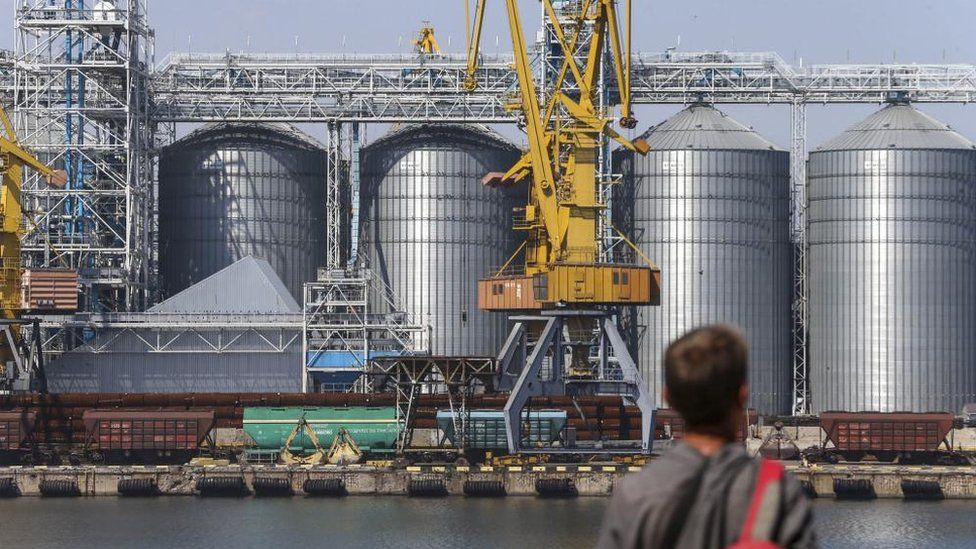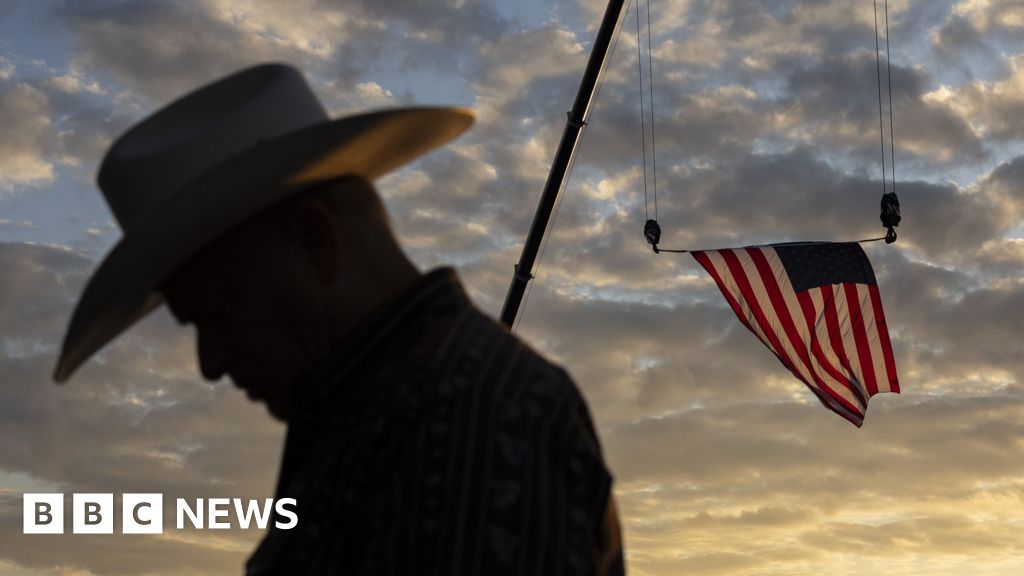ARTICLE AD BOX
 Image source, Reuters
Image source, Reuters
The pipeline runs to the Ukrainian port of Odesa from Togliatti in Russia
Russia has blamed Ukraine for a blast on a key ammonia pipeline and says it may have a "negative" impact on efforts to renew a landmark grain export deal.
Moscow has accused Ukrainian "sabotage" groups for the blast that damaged the Togliatti-Odesa pipeline on Monday.
And the Kremlin says it will not renew last year's grain export deal with Kyiv unless the pipeline is operational.
But President Volodymyr Zelensky denied the allegations and said the explosion was likely caused by Russian shelling.
Before the war, the 2,500km (1,534miles) pipeline - which runs from the Russian city of Togliatti to three Black Sea ports in southern and western Ukraine - exported 2.5 million tonnes of ammonia annually.
But operations on the pipeline ceased after Russian's invasion of Ukraine in February 2022.
During talks to ensure the export of grain from Ukraine last year, Kyiv and Moscow struck a deal to ensure the safe passage of ammonia through the pipeline, which is a key ingredient in the production of fertiliser.
The landmark deal brokered by the UN and Turkey was initially agreed in June 2022 for 120 days, and has been extended three times since. The current agreement is set to expire on 17 July.
But speaking to reporters in Moscow, Kremlin press secretary Dmitry Peskov said the blast "can only have a negative impact" on talks to renew the deal.
"You know that this topic figured as an integral part of the half of the deal that concerned us, so this is yet another complication in terms of extending the deal."
"We don't know what kind of destruction there is, we don't know what the Ukrainian side is going to do next," Mr Peskov added.
On Wednesday, Russian foreign ministry spokesperson Maria Zakharova said it would take between one and three months to repair the damage caused to the pipeline, but Industry and Trade minister Denis Manturov said on Thursday that Moscow has no access to the damaged section.
Ukraine has strenuously denied being behind the blast, and insisted that Moscow conducted the attack.
President Zelensky told reporters that the attack had occurred in a "grey zone" between territory controlled by Ukraine and Russia, and drew a distinction between the explosion and the blast at the Khakovka dam. .
"It's one story when it is the consequences of war. Yes, the Russian Federation is to blame, but those are the consequences of war," President Zelensky said. "But [in Kakhovka], we understand that this is terrorism. They mined it in advance and did it with their own hands."
"We see this as a completely different category," he added.
Elsewhere, Russian pro-war bloggers have suggested that a long awaited Ukrainian counteroffensive has begun in the southern region of Zaporizhzhia.
Andrey Rudenko, a correspondent for Russian state television channel Rossiya 24, claimed that Ukrainian tanks had launched attacks on Russian lines in the region and said Russian forces had repelled the attack.
And Vladimir Rogov, the Russian-installed governor of occupied Zaporzhzhia told state TV that he believed there had been an "attempt at a full-scale offensive for three days, even four" in the region.
But Oleksiy Danilov, the secretary of Ukraine's national security council, denied reports of the new offensive and said that when Kyiv does launch an offensive "everyone will know about it".
Senior US officials have previously told the BBC's US partner CBS News that it is accurate to say that the Ukraine counter offensive is in its opening phases, but that the main thrust has not yet begun.

 1 year ago
52
1 year ago
52








 English (US)
English (US)